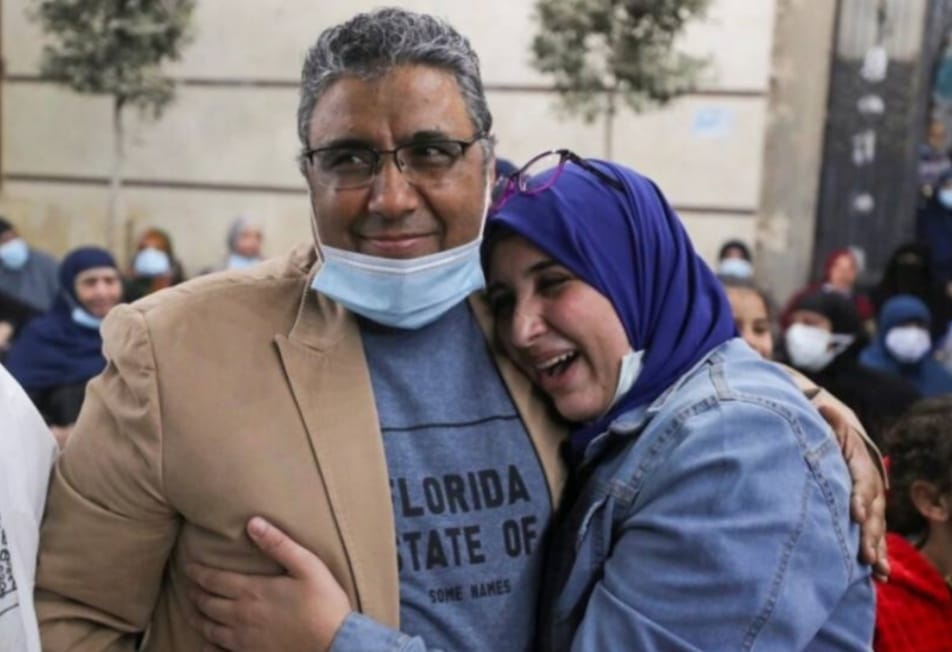The journalist was arrested in 2016 and imprisoned for over four years without formal charges or trial.
Al Jazeera journalist Mahmoud Hussein was released from Egyptian prison on Saturday, finally returning to his family after some four years behind bars.
The Qatar-based network’s acting director general, Mostefa Souag described Hussein’s long-awaited release as “a moment of truth and an inspiring milestone towards press freedom”.
“Today, we are pleased he is finally reunited with his family, after being robbed four years from his life and deprived of his fundamental rights. We wish Mahmoud a speedy recovery and hope he will be able to overcome this past ordeal and start a new chapter in his distinguished career,” said Souag in a statement.
The 54-year-old journalist and father of nine was arrested in Cairo airport in December 2016 after landing on a flight from Doha. He was interrogated for over 15 hours without the presence of a lawyer before being released.
A decade later: Has Al Jazeera changed its tune since the Egyptian uprising?
However, Hussein was shortly arrested once again over claims including “disseminating false news and receiving monetary funds from foreign authorities in order to defame the state’s reputation”.
He remained in Cairo’s prison for over four years without any formal charges or trial while consistently denying the accusations against him.
Al Jazeera, which launched a worldwide campaign demanding his release, said his arbitrary detention “was extended more than a dozen times” – exceeding Cairo’s maximum period for pre-trial detention and thus violating international law.
Hussein was held in solitary confinement, denied medical treatment when he broke his arm in 2017 and was subjected to what the UN’s Working Group on Arbitrary Detention described as “cruel, inhuman and degrading treatment”.
Responding to his return home, Souag thanked all organisations that campaigned for his freedom.
“Journalism is not a crime,” Souag said.
The shuttering of Al Jazeera was among a list of 13 demands issued to Qatar by the blockading quartet in June 2017 when Saudi Arabia, the UAE, Bahrain and Egypt severed diplomatic ties with Doha.
Speaking after the reconciliation earlier this month, Qatar’s foreign minister, Mohammed bin Abdulrahman Al Thani confirmed Al Jazeera was not part of any discussions or negotiations that led to the Al Ula declaration, backing claims that the former blockading quarter had since ditched the list of demands in latest efforts to end the Gulf dispute.
Follow Doha News on Twitter, Instagram, Facebook and Youtube







